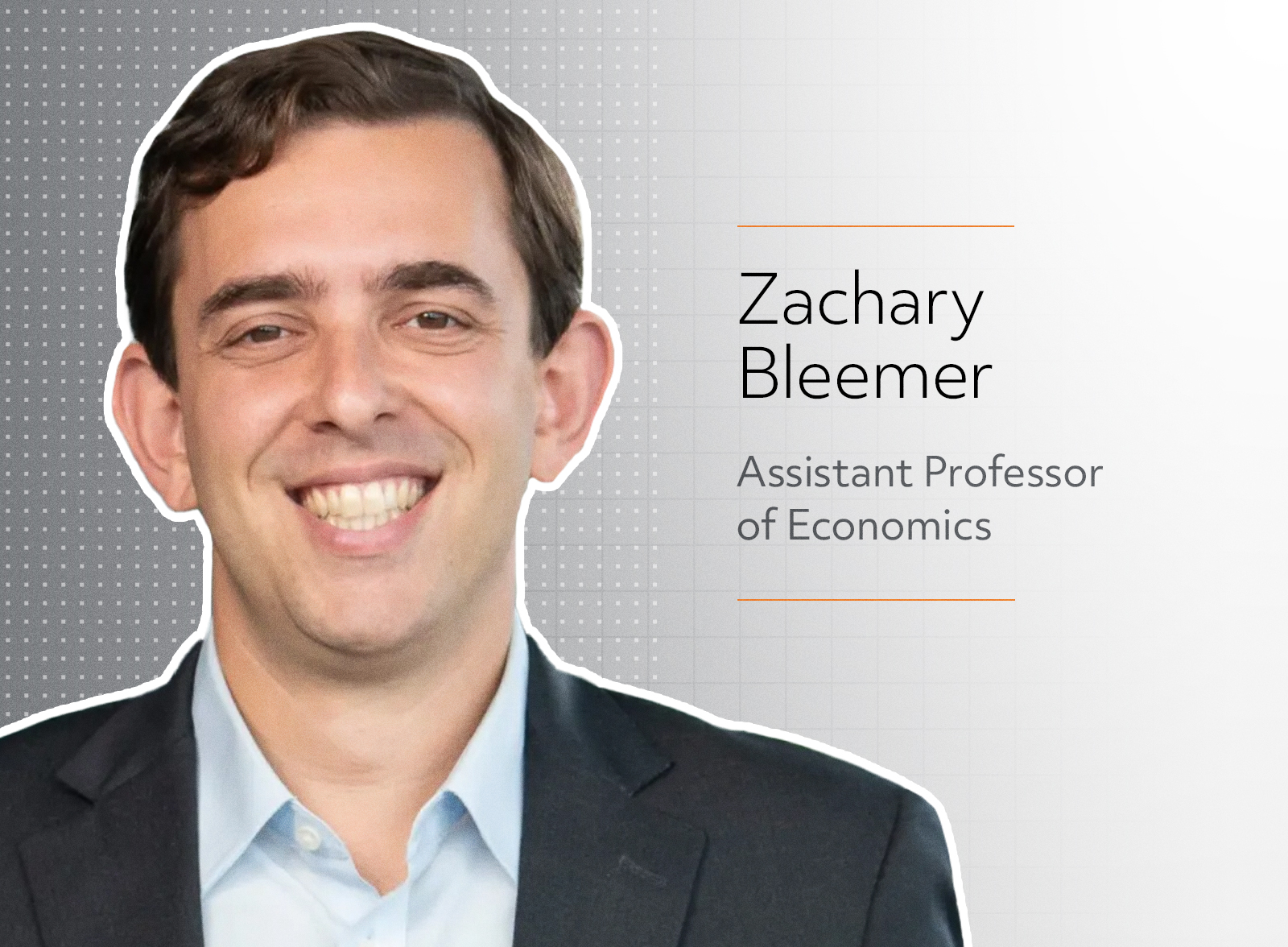Zachary Bleemer–labor economist who studies American higher education–joins Princeton Economics

The Economics Department at Princeton University is proud to announce that Zachary Bleemer, a labor economist who studies American higher education, has joined the department as an Assistant Professor of Economics.
Bleemer will also serve in the department’s renowned Industrial Relations Section–a research group that has been at the forefront of developing new methods for public policy evaluation since its founding 100 years ago.
Though only two years have passed since Bleemer completed his Ph.D. at the University of California at Berkeley, his groundbreaking research on affirmative action has already strengthened our understanding of one of the most urgent questions in higher education.
Questioning meritocracy in U.S. higher education
It was an analysis of the impact of California’s 2009 decision to ban race-based affirmative action at the state’s public universities that made such a splash in the news. The paper, published in the Quarterly Journal of Economics in 2022, used new data linking every student who applied to a school in the University of California (UC) system from 1994–2002 to that student’s educational experiences and wages.
“In the U.S., we tend to give awesome, high-quality education to high-testing, high-GPA, highly-prepared students, who often tend to be rich,” Bleemer said.
“But what would happen if we went out of our way to offer awesome, high-quality education to less-prepared students who also come from more disadvantaged backgrounds? This question, about meritocracy in higher education, motivates a lot of my work.”
The research ultimately debunked the “mismatch hypothesis,” which argues that ending affirmative action would benefit underrepresented minority students by resulting in their placement at less selective schools where they would be more successful. Instead, it showed that ending affirmative action in California both resulted in underrepresented minority students enrolling in lower-quality colleges and facing poorer labor market outcomes decades later while also deterring thousands of other students from applying to any University of California school—all without generating any significant benefit to white or Asian students.
Bleemer’s latest work continues to examine policies that determine access to certain types of education and how those policies affect different groups over the long-term. In another study of the UC system, Bleemer finds that grade-based “top percent” policies, which guarantee public university admission for students at the top of their class based on GPA and regardless of test scores, can increase the enrollment of disadvantaged students at selective colleges. What’s more, the “top percent” students who gain admission reap as much or more benefits from attending the schools as their high-testing peers. In a paper co-authored with Aashish Mehta at UC Santa Barbara that looks at restrictions on enrollment in certain majors after students are accepted at a school, Bleemer finds that major restrictions ultimately lead underrepresented minority students into majors that pay considerably less over time.
Putting data to work for students
To do all this research, Bleemer needed huge amounts of data that would allow him to (anonymously) track millions of 18-year-old students well into adulthood. Compiling that data took years and not only revealed important findings for policymakers, but also resulted in a wealth of information that could benefit students making critical decisions about their own education.
To make all that information directly available to students, Bleemer and his fellow researchers published a book to share the information that matters most. The book, “Metrics That Matter: Counting What’s Really Important to College Students,” is designed to serve as a handbook for students applying to colleges and making decisions about majors.
Bleemer says it wasn’t too long ago that, as a college student interested in philosophy and debating what major to choose, he first began to wonder how something like choice of major could affect both the individual and society at-large–and if we could use data to measure the outcomes.
“What happens to a person who spends their late teens thinking about philosophical aesthetics?” Bleemer asked. “What are the ramifications of the educational choices and policy environment that those students are in, not only for them, but for all of us as we educate the next generation? I think these questions have enormous implications for policy, and for the country.”
This year, Bleemer will teach undergraduate econometrics and graduate-level labor economics. If students are dropping by his office hours and looking for an ice-breaker, they might enjoy browsing the books, movies, and travel destinations he tracks on his website.
If anyone has a recommendation for a book he hasn’t read, a movie he hasn’t seen, or a place he hasn’t visited, he’d love to hear it.